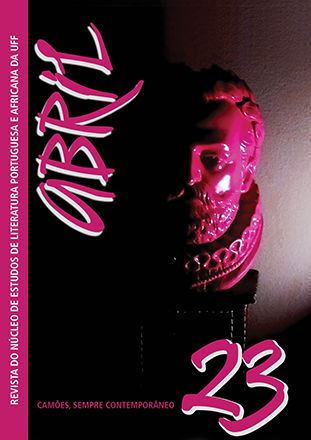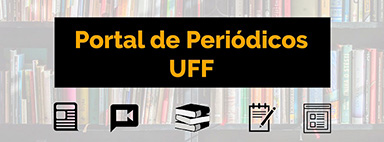The Camonian sonnet whithin the body of Brazilian contemporary poetry: Glauco Mattoso, author-reader of an unfinished tradition
DOI:
https://doi.org/10.22409/abriluff.v11i23.30278Keywords:
Luso-Brazilian poetry, Camões, Glauco Mattoso.Abstract
The sonnets written in Portuguese Language post-Luís de Camões always constitute an ethical-aesthetical form that – resuming, denying, transforming – answers to the most traditional name of lusophone lyric poetry. This paper focuses on contemporary Brazilian poet Glauco Mattoso’s sonnets, whose kaleidoscopic writing operates a significant metamorphosis in anthropophagically incorporated poems in his productions. This anthropophagy allows Glauquian poetry to visit (and reinvent) this lyric poetry’s high tradition, iconic in the works of Petrarca, Camões, Bocage and Bilac. We elected two poems as pillars of our analysis: “Bilacamonia” (1981) and “Soneto Bocágico-Camônico” (1999). The titles announce several reading references that weave a network of multiplicity, characteristic of Mattoso’s writings. Late 20th century Brazilian publications evoke poetic transit through different periods and traditions that reveal themselves, in the sense affirmed by Mikhail Bakhtin, unfinished, based on how they unfold and revitalize in each period’s culture. In this effort also act as theoretical interlocutors Danto (2006), on appropriation, and Perloff (1993), on collage. Thus, we propose a reading that combines past and present whithin the verses’ living bodies.Downloads
Downloads
Published
How to Cite
Issue
Section
License
I authorize the journal Abril - NEPA/UFF to publish the paper of my authorship/responsibility that I now submit, in case it is accepted for online publication.
Moreover, I declare that this contribution is original, that it was not submitted to any other editor for publication, and I sign the present declaration attesting the truth of all its contents.
The copyright of the works published at the virtual space of the journal Abril - NEPA/UFF are automatically entitled to the journal. Their total or partial reproduction is conditioned to the authors' citations and publication data.

Abril is licensed under a Creative Commons - Attribution-NonCommercial 4.0 International (CC BY-NC 4.0).









